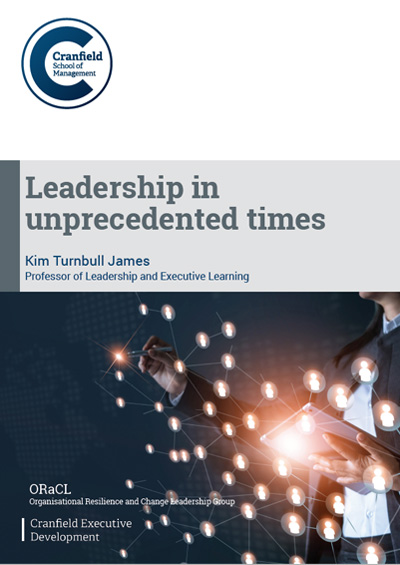By Kim Turnbull James, Professor of Leadership and Executive Learning
As we enter these unprecedented times, we are all looking for leadership. The difficulty is figuring out what kind of leadership we now need.
Clearly anyone who thinks they have simplistic answers has not been paying attention to the scale of the changes that have come like an avalanche since the turn of the year. Some of what we think of as good leadership still holds good but that will need to be balanced by the need for adaptive innovation as we try to reinvent our organisations and survive. Adaptive innovation – being experimental, creative and agile does not come from top down prescriptions – people need to be able to come together (now often virtually) to create new responses and take action.
People from all parts of our organisations need to step into inventing, influencing and shaping responses to an evolving situation. At the same time, people are fearful and are looking to senior executives to guide them thought this and protect their interests.
Leadership is not just about the strategy, plan and technical aspects of organisation, it is also about the human, emotional life of the organisation. Leadership enables people to work with each other, feeling safe enough to get on with their work. How can leaders enable new ways of working when people patently cannot feel a previous sense of safety, provided by the familiarity of their social world?
Senior leaders will need to work with opposing tensions. They need to balance and weigh up what people may want to make them feel less anxious with what they may need to make the changes needed. Here are three aspects of leadership that need re-balancing in unprecedented times.
About Cranfield University
Cranfield University is a specialist postgraduate university that is a global leader for education and transformational research in technology and management.


